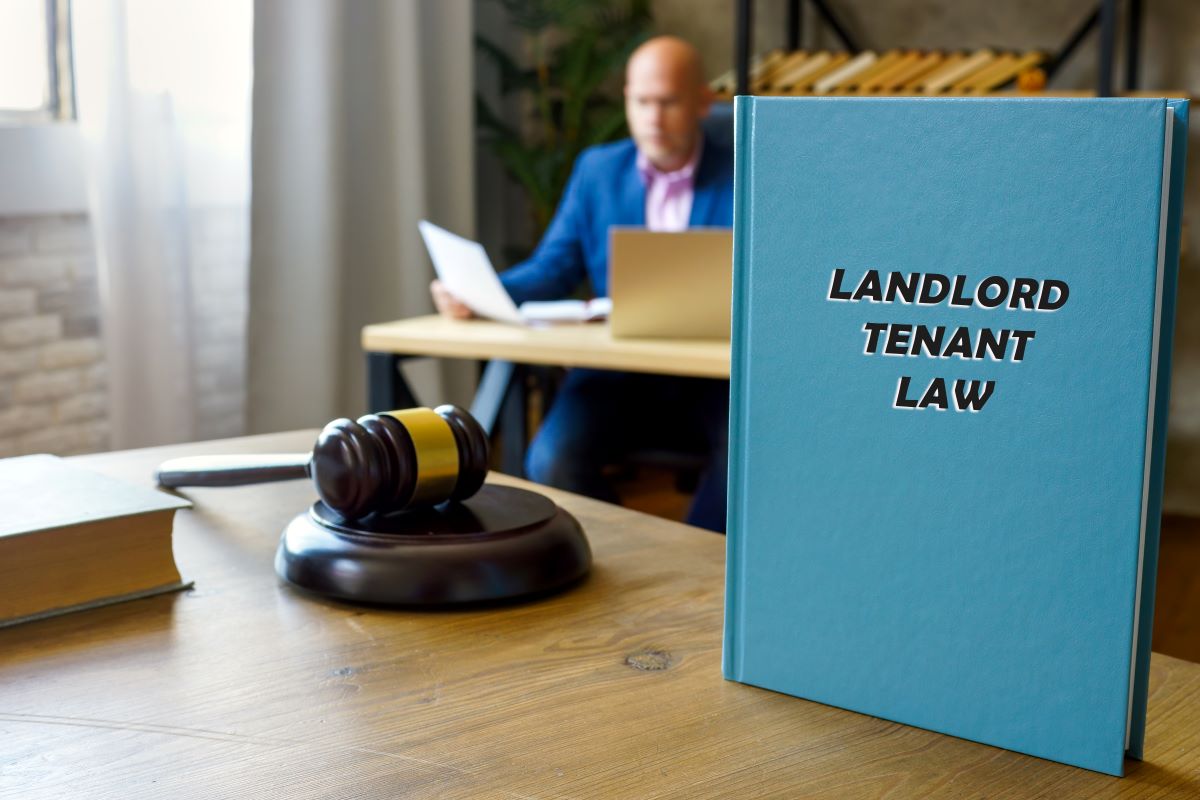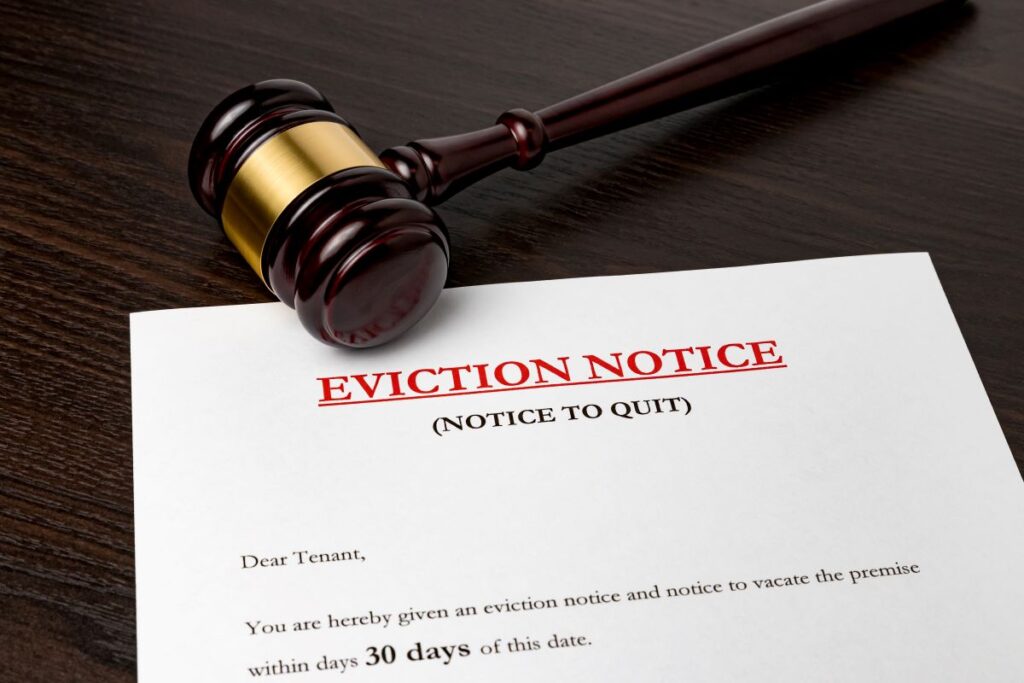As a landlord in California, navigating the eviction process is a key responsibility in managing your rental property. Evictions can be intricate, particularly due to the Just Cause requirements, and it’s vital to follow the correct legal procedures to avoid complications. This guide provides an updated overview of the eviction process, from understanding the grounds for eviction to complying with California’s laws.

Understanding Landlord Rights in Sacramento, California
Step-by-Step Overview of the Eviction Process
Determine Valid Grounds for Eviction: Before beginning the eviction process, ensure you have legitimate reasons for doing so. Common grounds for eviction in California include:
- Non-payment of Rent: When the tenant fails to pay rent.
- Lease Violations: Such as unauthorized occupants or pets, excessive noise, or other breaches of lease terms.
- Illegal Activities: Activities conducted on the property that are unlawful.
- Significant Property Damage: Damage beyond normal wear and tear.
Serve the Proper Notice
You must serve the tenant with the appropriate notice, depending on the reason for eviction:
- Three-Day Notice to Pay Rent or Quit: For non-payment of rent, this notice gives the tenant three days to pay the overdue rent or vacate the property.
- Three-Day Notice to Cure or Quit: For lease violations, this notice allows the tenant three days to correct the violation or leave the property.
- Thirty-Day or Sixty-Day Notice to Quit: For no-fault evictions, such as ending a month-to-month tenancy. A 30-day notice applies to tenants who have lived on the property for less than a year, while a 60-day notice is required for tenants who have lived there longer.
 File an Unlawful Detainer Lawsuit
File an Unlawful Detainer Lawsuit
If the tenant fails to comply with the notice, you may file an unlawful detainer lawsuit in court to seek a formal eviction.
Serve the Summons and Complaint
The next step involves serving the tenant with a summons and complaint, which can be delivered by a process server or sheriff.
Await the Tenant’s Response
The tenant has five days to respond to the lawsuit. They can contest the eviction or choose not to respond, which could result in a default judgment in your favor.
Prepare for the Court Hearing
If the tenant contests the eviction, a court hearing will be scheduled. Both sides will present their cases, and the judge will decide whether to grant the eviction.
Obtain a Writ of Possession
Should the judge rule in your favor, a writ of possession will be issued, allowing the sheriff to remove the tenant if they do not leave voluntarily.
Sheriff’s Eviction
The sheriff will post a notice to vacate, typically giving the tenant five days to leave. If the tenant remains beyond this period, the sheriff will physically remove them from the property.
Common Grounds for Eviction
- Non-Payment of Rent: This is the most common cause of eviction. Ensure you keep thorough documentation of missed payments to support your case.
- Lease Violations: Document each violation, such as unauthorized pets or noise complaints, with evidence to strengthen your case in court.
- Property Damage: Gather photos, repair estimates, and other evidence to demonstrate damage that goes beyond normal wear and tear.
- No-Fault Evictions: Occur when the landlord needs the property for personal use, extensive renovations, or intends to sell. Make sure you comply with local laws and provide proper notice.
Ensuring Compliance with California State Laws
- Adhere to Proper Notice Protocols: Make sure all notices are properly completed and legally delivered. Mistakes in this process can delay the eviction.
- Maintain Detailed Records: Keep comprehensive records of all communications with the tenant, notices served, and any incidents. This documentation is essential if the eviction is contested.
- Respect Tenant Rights: Tenants retain rights even during eviction. Avoid illegal actions, such as changing locks or shutting off utilities, which are prohibited in California.
- Seek Professional Legal Advice: Due to the complexities of eviction laws, consulting with a lawyer can help you navigate the process and avoid potential legal issues.
Conclusion
Understanding the eviction process in California and adhering to legal requirements is crucial for landlords. By following these steps, you can manage evictions efficiently and legally. If you need guidance or assistance, the experienced attorneys at Abdallah Law Group are ready to help. Contact us today to protect your rights as a landlord and ensure a smooth eviction process.


 File an Unlawful Detainer Lawsuit
File an Unlawful Detainer Lawsuit

